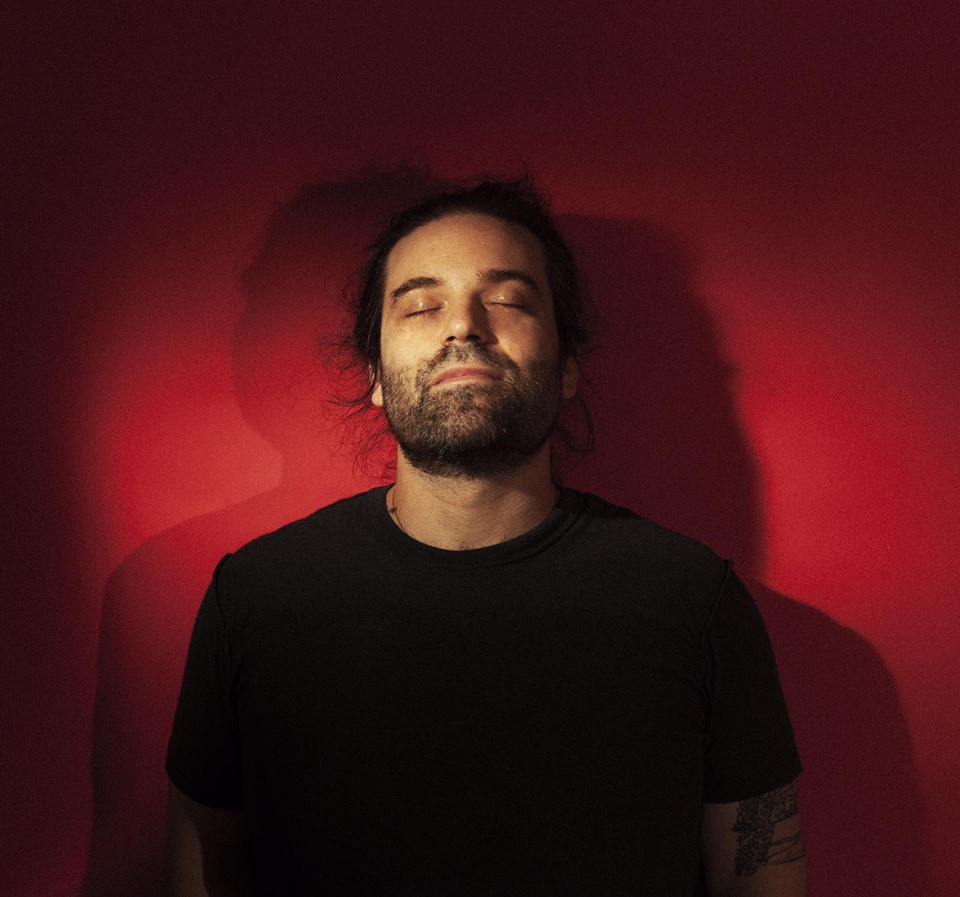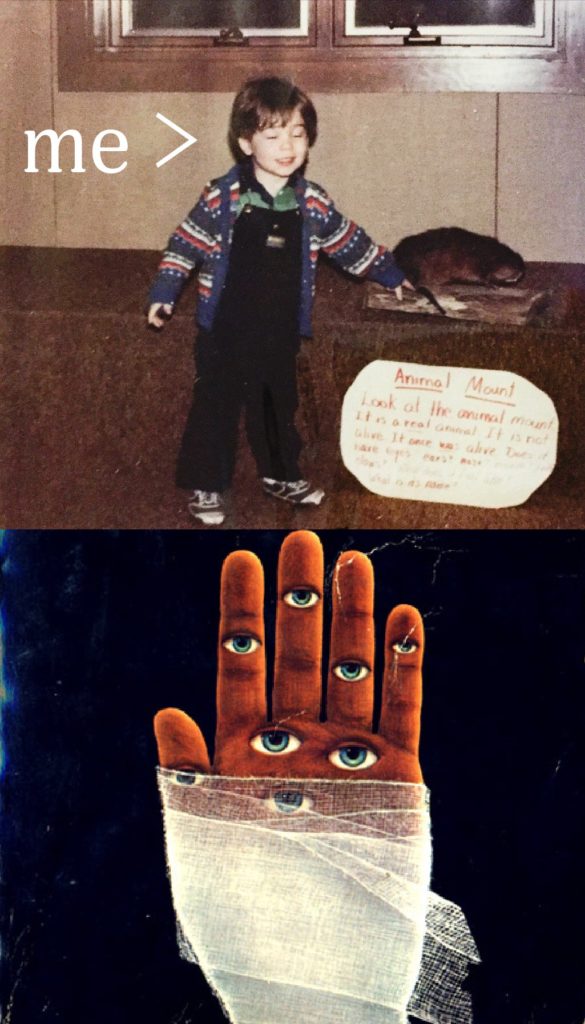Elliot Polinksy on Stephen King
I’m ten years old, my family’s moved to a new neighborhood near the edge of the city and it feels distant, suburban. My friends are the old place, where my childhood heart is too. I’ve been reading books since birth but the new, arguably stubborn isolation of my days opens a moment where reading books is flatly the most important thing in my world. In the early nineties, a new mass-market trade paperback Stephen King novel cost $5.95, if I remember. From my parents, I received a five dollar weekly allowance. As we speak I feel a really faint, impossibly strong nostalgia around the weekly ritual of locating an extra buck plus tax so I could purchase another novel on Saturday morning. Even though the constellation of memories (they feel both sensory and abstract) are vague—like I don’t know how the hell I would get that money— they make my whole mind feel like it’s ten again. Zap. Anyway, I’d walk up to Encore Books and browse happily before grabbing a volume and walking home, so excited about the magic in the bag slopping back and forth against my hip. All that year I read Stephen King novels at a rate of roughly one per week. Misery, The Dark Half, The Tommyknockers, Different Seasons, Pet Cemetery, The Shining, It (def more than a week), The Stand (likewise)— and I read like a fucking beast, all the time, a ragged book in my hands during any corner of the day: for example, in middle school, between classes, we’d walk the halls in lines, and when we reached a doorway the first kid would step out, hold the door for everyone else, and re-join the line at the end. Another whole-mind-zap-back: reading The Dark Half (my favorite) while holding the door for thirty or so kids, then feeling jarred uncomfortably when it was time to keep moving. It’s not only Stephe King. That same year I read Les Miserables and Anna Karenina and it never occurs to me to distinguish between high and low literature. All the stories make me equally happy. All I think about is reading.
Around that time I start writing stories. The first one tells of a misunderstood witch who lives near the ragged train tracks and the next few are all re-writes of Brothers Grim fairy tales— I dig those latter but feel that they beg more explanation, I roam around thinking on them: for example Rumplestilskin, where a gnome locks a woman in a room and she’ll have to stay with him if she can’t guess his name. Why would he do that? I write a version where his crude motives are made clear. I write more fairy tales, more or less harsh all of them, and then print them on my family’s dot matrix printer. And then, because it will be years before I recognize and seek to break the pride-shame dichotomy that’s accompanied my creative processes since probably some past life, I crumple the pages and stash them behind my the bookshelves in my bedroom.
That year during parent-teacher conferences, a teacher at my school complains to my mom about my Stephen King habit.
“El,” my mom later reports: “she said that even if you are mature enough to handle those books, which she doubts, the other children are certainly not.”
“But I’m the one who’s reading them,” I say.
“She says that the other children are taking an interest.”
I know it’s true, too. A girl I like asked to borrow The Dark Half, for example— zap— and I told her she can hold it when I’m finished.
My mom agrees to let me keep reading whatever I want as long as I don’t break them out in school. Until I come home one day to find my bookshelf pulled away from the wall, the stories gone, and the shelves mostly empty, robbed of their Stephen Kings. I feel absence lack, a kind of low horror. I loved those books so much.
2.
I’m in college, it’s midnight, I’m blazed off multiple dutches and hours of writing fragments. All the stories I present in workshops come from these late-night sessions. I mash them up and make collages, feeling like a fraud because nothing I make is linear. In class, I learn how authors are tyrannous and reflect the colonialism of their countries. A famous Shakespeare scholar tells me that she can’t grade my paper because it reads like a work of fiction, complete with building tension and climactic reveal at the end of a thesis that should have been announced at the beginning. I make corrections. Get heavy into meta-narrative. At some point, I become convinced that I can will myself into the life that I want by writing only good things. I read Chekhov, Virginia Woolf, Borges, Jane Austin, Poe. I take more lit classes, write analytical papers on those authors, close read texts with Freud and Foucault.
My girlfriend lives across the country and I’m really focused on being true to that relationship. All the time I’m lonely. Sometimes, after his shift, late at night, my best friend from high school comes over to smoke blunts— and if it gets late, and if he doesn’t want to go home yet, he’ll fall asleep on my couch while I pivot around in my desk chair and switch from talking to writing. It’s a lot of hopeless romance in pieces. I try to will the good outcome through a text. I graduate from college, assuming that I’ll soon write a novel.
Zap— with my girlfriend in Paris, a small hotel room, chain-smoked cigarettes, arguments, tears and sex at intervals. I have the thought that there are two trees in me now: one that loves, one that hates. This strikes me as a terribly important revelation. It’s a visceral, physical thing that haunts me for years.
A while later I forget how to write completely. I feel like a fool and can’t trust a thing, least of all my sentences. I work an office job, get a master’s degree, bum around tending horses and doing low-level computer programming. I begin to hate myself.
3.
Boom, I’m in my thirties, it’s almost the present.
Somehow I’m a yoga teacher and a photographer. I know that on some level I’ve made every decision in my whole life in the hopes that it would lead to better writing. But all I’ve written for years are documents that read like angsty teen journals. I edit sentences down to nothing. I manage to write a pseudo novella that tells of my woes in what I hope is a comical fashion. It’s written in fragments. I tell people that it’s a phenomenology of existential depression and a few readers seem to really like it, though it’s rejected from all small publishers and contests. I don’t blame them. It should be sampled down to a short story, really.
I take a break from writing. For the first time in twenty-some years, I buy a Stephen King novel. They’re mad expensive now, around twenty bucks. I’m like damn, really? I feel old and young. But I entertain an unlikely hope that reading them will help me to access my mind as it was during the innocence of my childhood. If so, that would be a small price. So for a month, every spare moment is for King. I read when I wake, while drying off after a shower, between yoga classes, after editing photos, in the car at red lights instead of scrolling on my phone. His writing is smooth and sometimes tedious but it moves, it’s vivid, and there’s a depth to certain phrases that way-transcends any genre; I mean much like simple fairy tale statements can speak so much about our deepest love and deceit and bravery and confusion. I find images of his books from the early nineties: The Dark Half, where two reddish black sparrows make up a single human-esque face; Night Shift, where a bandaged hand is covered in eyeballs; a blue-tinted Misery with the title in courier. These covers predate the movie versions. When I look at them I feel myself seated before the computer in my dad’s den, typing words on the all-blue Wordperfect screen that seemed like it could hold anything.
As far as this all fixing my relationship to words?
I don’t know, I mean I guess we’ll see but I feel like it worked.
Maybe our minds really do hold tunnels: doorways disguised as innocuous parts of our selves— locks opened by keys made from other pieces.
Zap.
—-
 Elliot lives in center city Philly though he’s been entertaining rural fantasies. He has an undergraduate degree in English and creative writing from the University of Pennsylvania and a Master’s degree in early American lit from Vanderbilt. In a strange twist he now teaches yoga and takes pictures for a living. His first novella, imperfect though it may be, can be found on Instagram at @dayspassfast – his image work is at elliotpolinsky.com, or on ig at @_elliotp – and his yoga classes and retreats are at yogawithelliot.com . If he eats one mochi he’ll eat one hundred. his favorite tarot card is the tower.
Elliot lives in center city Philly though he’s been entertaining rural fantasies. He has an undergraduate degree in English and creative writing from the University of Pennsylvania and a Master’s degree in early American lit from Vanderbilt. In a strange twist he now teaches yoga and takes pictures for a living. His first novella, imperfect though it may be, can be found on Instagram at @dayspassfast – his image work is at elliotpolinsky.com, or on ig at @_elliotp – and his yoga classes and retreats are at yogawithelliot.com . If he eats one mochi he’ll eat one hundred. his favorite tarot card is the tower.

